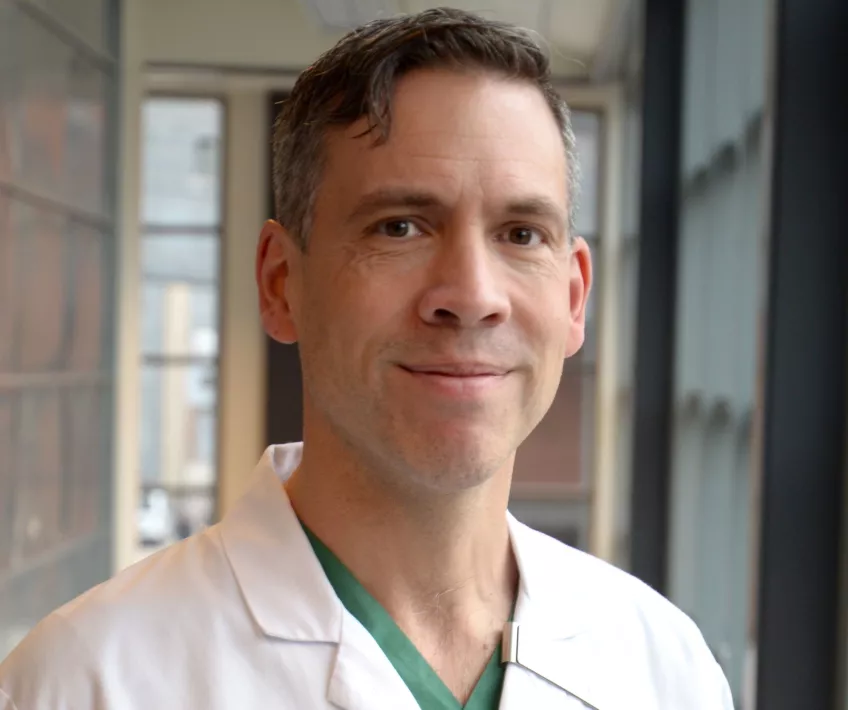Cancer Cell Evolution
We make genetic and functional maps of cancer cell evolution in patients by analysing multiple tumour samples from the same patient. In particular, we focus on childhood cancer where we try to unravel the genetic mechanisms leading to relapse and treatment resistance.
To achieve our aim, we use methods from species evolution (phylogenetics) to reconstruct the evolutionary history of individual tumours, from its founder cell up to clinical presentation, over treatment periods and at relapse. These data are used as the basis to understand how clinical biomarkers change over space and time in patients.
Also, we compare patterns of evolution to parameters of the tumour microenvironment in order to find out how surrounding factors shape the cancer genome through selection. In particular, we study the influence of chemotherapy effect and the patient’s immune response.
Examples of Recent Publications
- DEVOLUTION - A method for phylogenetic reconstruction of aneuploid cancers based on multiregional genotyping data. Natalie Andersson, Subhayan Chattopadhyay, Anders Valind, Jenny Karlsson, David Gisselsson 2021. Commun Biol 4(1):1103.
- Tracing the evolution of aneuploid cancers by multiregional sequencing with CRUST. Subhayan Chattopadhyay, Jenny Karlsson, Anders Valind, Natalie Andersson, David Gisselsson 2021. Brief Bioinform bbab292. doi: 10.1093/bib/bbab292.
- Extensive Clonal Branching Shapes the Evolutionary History of High-Risk Pediatric Cancers. Natalie Andersson*, Bjorn Bakker*, Jenny Karlsson, Anders Valind, Linda Holmquist Mengelbier, Diana C J Spierings, Floris Foijer, David Gisselsson. Cancer Res 80(7):1512-1523
- Four evolutionary trajectories underlie genetic intratumoral variation in childhood cancer. Jenny Karlsson, Anders Valind, Linda Holmquist Mengelbier, Bredin, S., Louise Cornmark, Jansson, C., Wali, A., Johan Staaf, Viklund, B., Ingrid Øra, Anna Börjesson, Backman, T., Noémie Braekeveldt, Sandstedt, B., Pal, N., Isaksson, A., Lackner, B. G., Tord Jonson, Daniel Bexell & David Gisselsson, 2018. Nature Genetics. 50, 7, p. 944-950
- Cancer - An Insurgency of Clones. David Gisselsson & Egnell, R., 2017. Trends in Cancer. 3, 2, p. 73-75
- Mosaicism in health and disease — clones picking up speed. Forsberg, L. A., David Gisselsson & Dumanski, J. P., 2017. Nature Reviews Genetics. 18, p. 128-142
Mission statement
Our core values can be summarised as follows:
Situation Cancer is one of the leading causes of death for children in developed countries. One main cause of cancer death is the emergence of treatment resistance through clonal evolution of cancer cells.
Mission To find new strategies to prevent and manage relapse in children with cancer. To do this, we must understand the mechanisms that make cancers adapt and become resilient to therapy.
Execution Analyses to identify evolutionary first principles that make cancer cells grow, spread, and survive microenvironmental challenges. Hypotheses will be derived from extensive patient data to be tested mechanistically in model systems.
Support Research grants are competed for in order to afford frontline genomic methods and expert data handling. Individual efforts are supported by comradeship and constructive criticism. We select collaborators based on expertise and mutual benefit.
Communication We communicate with candour, courage and consideration. We never hesitate to ask for help from our peers. Admitting ignorance and imperfection is the first step to learn.
David Gisselsson Nord
Professor of Molecular Pathology
Senior Consultant Pathologist
Division of Clinical Genetics
Department of Laboratory Medicine
Lund University
Division of Oncology-Pathology
Department of Clinical Sciences
Lund University
Clinical Genetics and Pathology
Medical Services
Skåne Region
Phone +46 46 733 91 40 36
Mail: David [dot] Gisselsson_Nord [at] med [dot] lu [dot] se (David[dot]Gisselsson_Nord[at]med[dot]lu[dot]se)
Research group members:
Linda Holmquist Mengelbier, PhD
Jenny Karlsson, PhD
Subhayan Chattopadhyay, PhD
Caroline Jansson, M.Sc.
Bahar Rastegar, MD
Kaname Uno, MD
Natalie Andersson, MD
Independent scientists affiliated to the group:
Anders Valind, MD, PhD
Catharina Hagerling, MD, PhD
Patrik Romerius, MD, PhD



